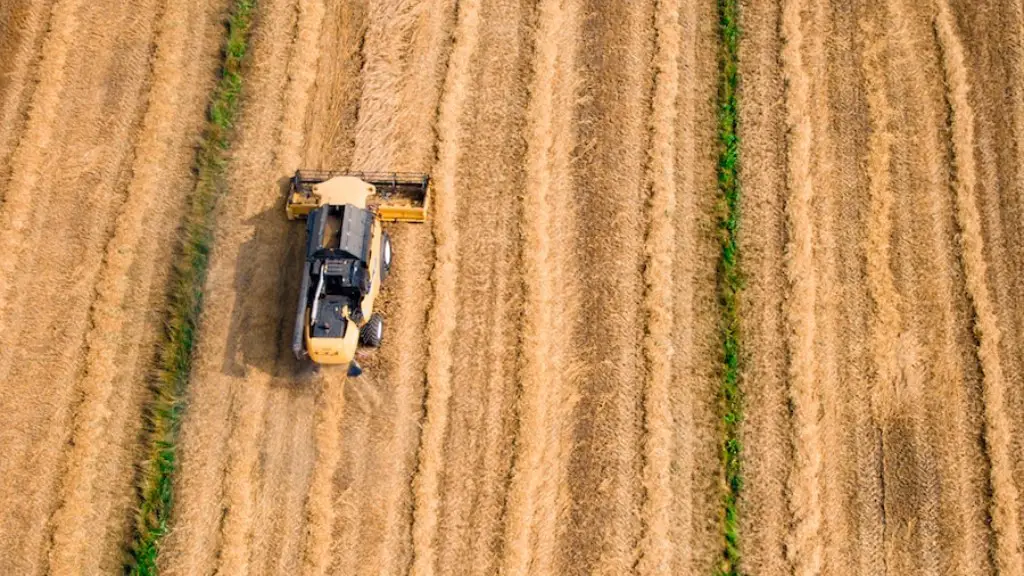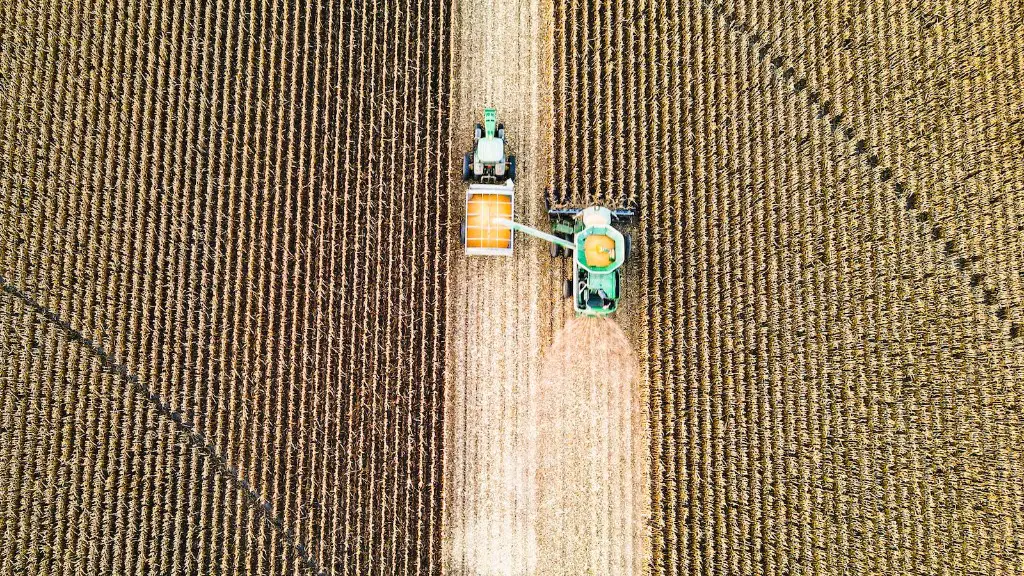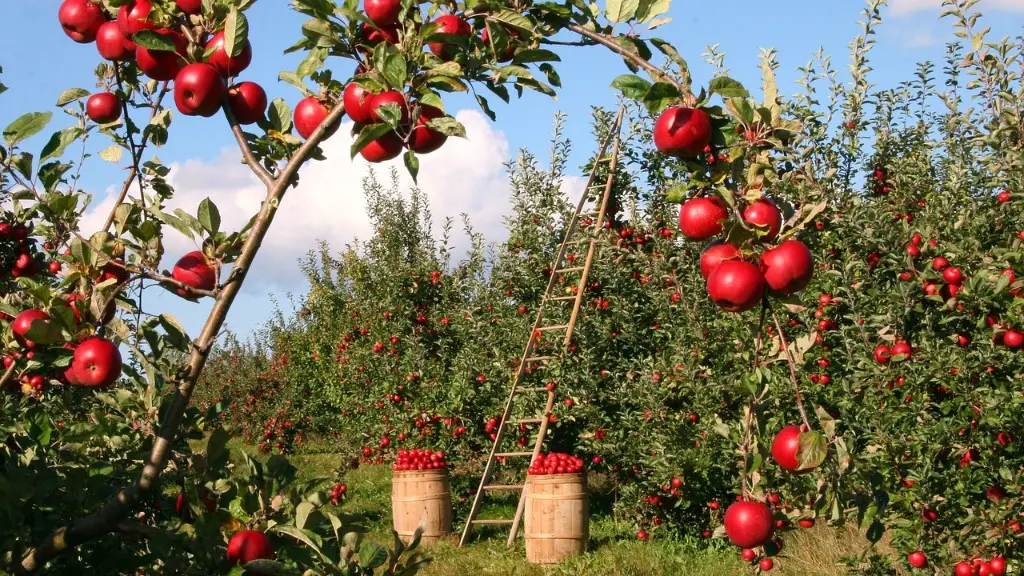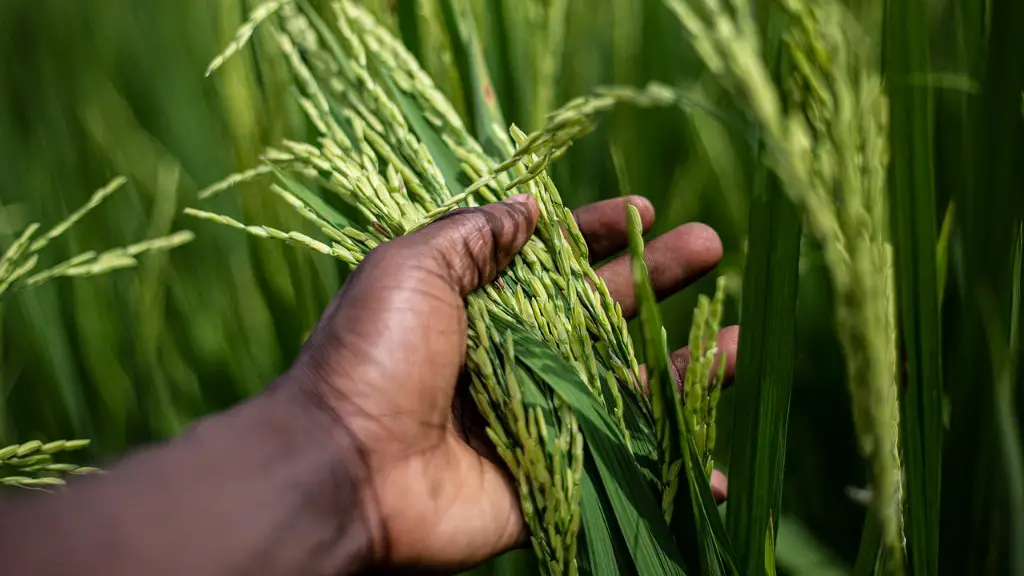The importance of sustainable agriculture cannot be understated. The need for sustainable agriculture is two-fold: first, to support the growing population and second, to protect the environment. By definition, sustainable agriculture is the production of food, fiber, or other plant or animal products using farming techniques that protect the environment, public health, human communities, and animal welfare. In other words, sustainable agriculture is the process of producing food in a way that does not deplete the resources of the earth or damage the environment.
The need for sustainable agriculture is to produce food in a way that doesn’t deplete the resources of the land and to ensure a continual supply of food. It is a method of farming that conserves water, soil, and energy and protects the health of the environment.
What are 3 reasons favoring sustainable farming?
Sustainable farming is an alternative to traditional farming that focuses on the long-term health of the environment. Sustainable farmers work to protect natural resources, conserve water, and reduce pollution. They also strive to create a more equitable food system that benefits both farmers and consumers.
Sustainable agriculture has many benefits that include reducing costs, preventing pollution, saving energy, preventing soil erosion, being animal-friendly, promoting biodiversity, and improving food production with less waste and public health.
What are the 3 main components of sustainable agriculture
There are a number of different ways to approach sustainable agriculture, but all share the same basic goals: environmental health, economic profitability, and social and economic equity.
Environmental health is about protecting and restoring the natural environment, including the soil, water, and air. This is essential for the long-term productivity of farms and for the health of the people who live and work on them.
Economic profitability is about making sure that farmers can make a living from their work. This includes ensuring that farmers receive a fair price for their products, and that they have access to the resources they need to produce them.
Social and economic equity is about making sure that everyone involved in the food system – from farmers to consumers – has access to the resources they need to live a decent life. This includes access to land, credit, education, and other basic services.
Sustainable agriculture is a type of farming that seeks to integrate three main objectives: a healthy environment, economic profitability, and social and economic equity. This type of agriculture strives to be environmentally friendly, efficient, and socially just.
What are the four goals of sustainable agriculture?
The Canadian agricultural industry is committed to protecting and enhancing the environment and natural resources. Farmers are working to protect the economic viability of their operations and to provide sufficient financial reward to enable continued production. The industry is also working to produce sufficient high-quality and safe food to contribute to the well-being of the Canadian community.
Sustainable agriculture practices are those that protect and improve the natural resources upon which agriculture depends—soil, water, and air—while also providing social and economic benefits for farmers and rural communities. There are many ways to farm sustainably, but some common practices include rotating crops and embracing diversity, planting cover crops and perennials, reducing or eliminating tillage, applying integrated pest management (IPM), integrating livestock and crops, adopting agroforestry practices, and managing whole systems and landscapes.
What are 3 reasons why agriculture is important?
Agriculture is a vital industry for any country. It’s the main source of raw materials for many industries, it’s important to international trade, and it plays a big role in a nation’s revenue. It also provides employment for a large number of people, and it’s crucial to a country’s development. In addition, agriculture can help heal the environment, and it goes hand-in-hand with war.
Second, sustainable agriculture leads to more efficient and effective production, improving soil health and water-use efficiency, while also reducing costs associated with inputs such as energy, fertilizers, and pesticides. This results in increased yields and farmer profitability.
Third, sustainable agriculture contributes to food security by increasing the resilience of crops and livestock to climatic shocks, pests, and diseases. This diversification of risk helps to ensure a more stable and reliable food supply, especially in times of crisis.
Fourth, sustainable agriculture creates a more just and equitable food system, from farm to fork. It supports farmers in developing countries who often lack the resources to adopt modern, industrial agricultural practices. It also promotes fair labor standards and environmentally friendly working conditions throughout the food chain.
Lastly, sustainable agriculture is a key driver of rural economic development, generating employment and income opportunities in rural areas. This growth is essential for reducing poverty and achieving other development goals.
What are the 5 main components of sustainable agriculture
Smallholder farmers and food producers must increase their productivity and efficiency in order to meet the needs of a growing population. They must also protect and enhance natural resources, such as land, water and forests. Inclusive economic growth must be promoted, in order to improve livelihoods and reduce poverty. The resilience of people, communities and ecosystems must be enhanced in the face of climate change and other shocks. Finally, governance must be adapted to new challenges, in order to ensure that food systems are sustainable.
The world is facing a number of major challenges in regards to natural resources. Firstly, these resources are becoming increasingly scarce, as they are being used up faster than they can be replenished. Additionally, the degradation of these resources is happening at a rapid pace, further exacerbating the issue. This is happening at a time when the demand for agricultural products is increasing rapidly, putting even more pressure on these resources. These challenges need to be addressed urgently in order to ensure the sustainability of our food supply and the environment as a whole.
What factors influence sustainable agriculture?
There are many factors that contribute to a successful farming site, but climate, soil, nutrients and water resources are some of the most important. Of the four, water and soil conservation are the most amenable to human intervention. By taking measures to conserve these resources, farmers can help ensure a successful growing season.
Sustainable agriculture is a rapidly growing field that encompasses a vast array of practices and methods. Here are 16 of the most promising practices currently being used in sustainable agriculture:
1. Organic Farming: Organic farming is a set of practices that seek to create a more environmentally sustainable and ecologically friendly system of food production.
2. Agroforestry: Agroforestry is a land management practice that incorporates trees or other woody vegetation into traditional farming and ranching systems.
3. Natural Farming: Natural farming is an approach to agriculture that seeks to minimize the use of synthetic inputs and maximize the use of ecologically sustainable methods.
4. System of Rice Intensification: The System of Rice Intensification (SRI) is a set of practices that can significantly increase yields of rice while using less water, seed, and inputs.
5. Precision Farming: Precision farming is a set of practices that use technology to improve the efficiency and sustainability of food production.
6. Conservation Agriculture: Conservation agriculture is a set of practices that seek to minimize soil disturbance, maintain a permanent soil cover, and diversify crop rotations.
7. Crop Rotation and Intercropping: Crop rotation and inter
What are the benefits of sustainable agriculture on the environment
Sustainable management of agricultural operations is critical to preserving and restoring habitats, protecting watersheds, and improving soil health and water quality. WWF works to identify and implement better management practices for agriculture that maximize production while minimizing negative environmental impacts.
In India, agriculture is the main source of raw materials for many industries, such as cotton and jute fabric, sugar, tobacco, edible and non-edible oils. Other industries that get their raw materials mainly from agriculture include processing of fruits and vegetables and rice husking.
What are the benefits of agriculture to the community?
Agriculture plays a vital role in society and impacts it in many ways. It supports livelihoods through food, habitat, and jobs; provides raw materials for food and other products; and builds strong economies through trade. Agriculture is essential for society and its importance should be recognized.
Agriculture is one of the most important pillars of many industries. Without agriculture, many industries may not be able to survive. This is because agricultural products serve as raw materials for the production of many items. Agricultural products are essential for many industries, and without them, these industries would not be able to function.
Who benefits from sustainable agriculture
agriculture is the main source of livelihood for almost half of the world’s population. It is thus imperative that we promote sustainable agricultural practices, in order to ensure economic stability for farmers and to help improve their quality of life.
Fertilizers and pesticides are necessary to grow crops, but they can also damage the environment. Fertilizer can reduce the fertility of the land, damage soils and water sources, and contribute to greenhouse gas emissions. Pesticides can also damage the environment, and they can be harmful to human health.
Final Words
The need for sustainable agriculture is to ensure that farming practices can be maintained in the long-term without damaging the environment. This is achieved through methods such as using natural fertilizer instead of chemical, rotating crops, and using sustainable pest management practices.
The need for sustainable agriculture is great. With the world’s population projected to reach 9 billion by 2050, we need to find ways to produce more food with less impact on the environment. Sustainable agriculture practices can help us do this by reducing our reliance on synthetic pesticides and fertilizers, while still maintaining high crop yields. In addition, sustainable agriculture can help us reduce our greenhouse gas emissions, which are a major contributor to climate change.





